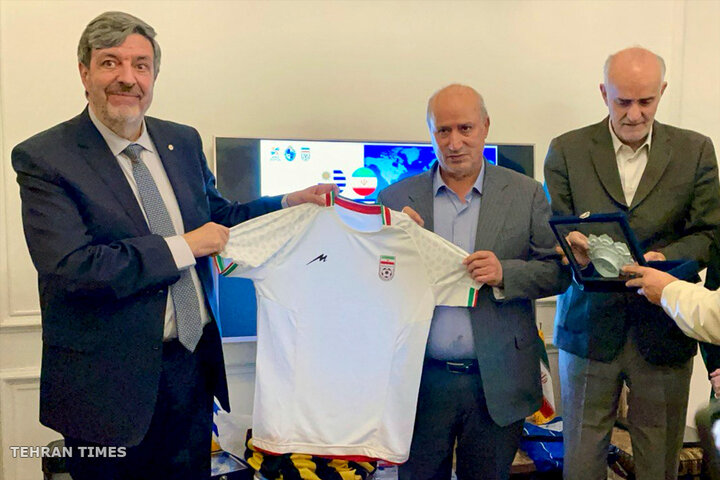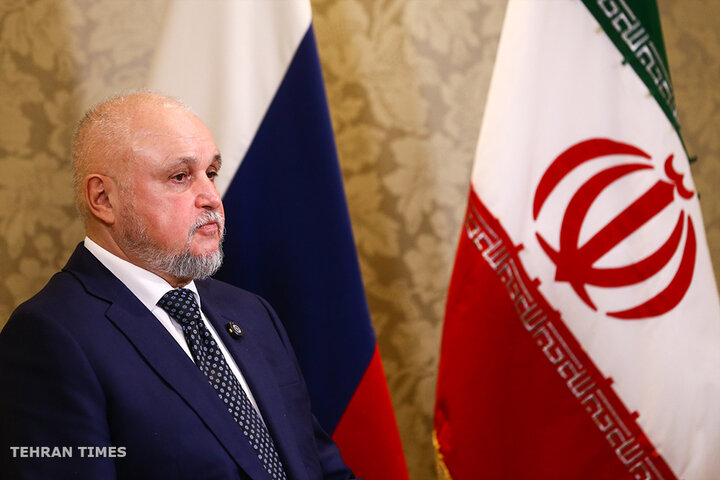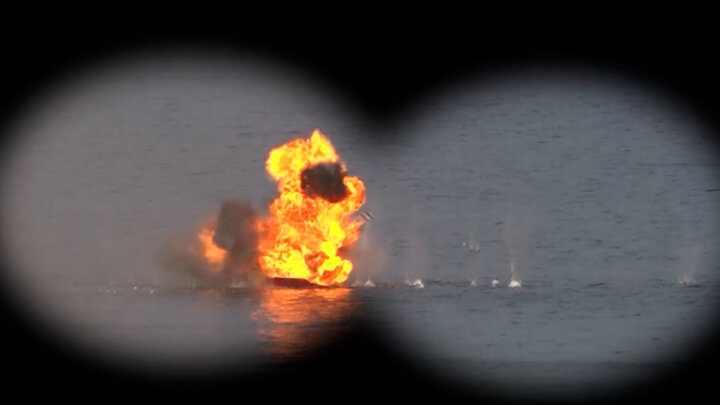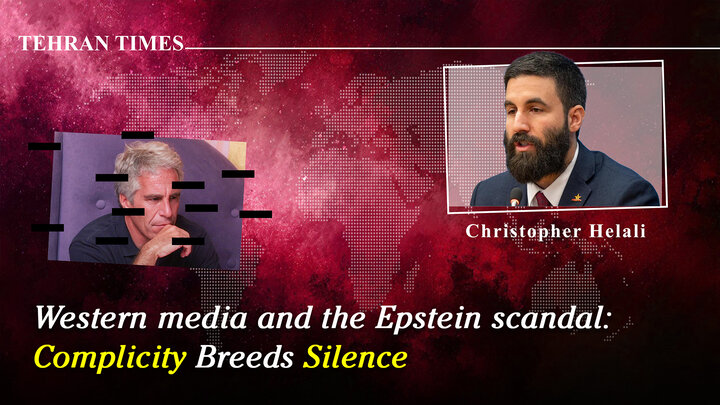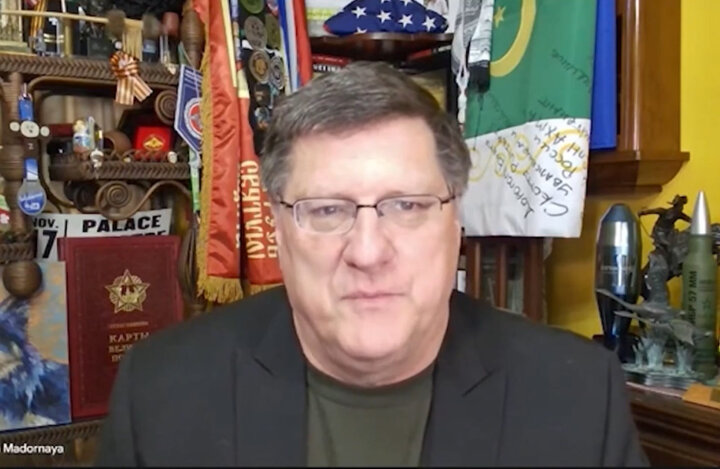-
 2026-02-28 21:03
2026-02-28 21:03
By Soheila Zarfam
Iran was not bluffing
Iranians warned renewed US aggression will trigger a regional war—and now It has
TEHRAN - When Iranian journalists sat down with diplomats ahead of the first round of the nuclear negotiations in early February, they all had one question in mind: Do we even know that the U.S. will not attack Iran in the middle of talks again?
-

Iran’s Day 1 strikes
IRGC and Artesh hit 14 US bases, one ship, several Israeli cities, and begin closure of Hormuz Strait
TEHRAN – Iran launched a significant wave of missile and drone attacks against military installations across West Asia and targets within Israel throughout Saturday, beginning its offensive shortly after the United States and Israel conducted joint strikes against sites within Iran.
-

85 female elementary students killed in US-Israeli strike on Iran
The U.S.-Israeli airstrikes that targeted several Iranian cities on Saturday, ahead of a new round of negotiations between Tehran and Washington, struck an active girls’ elementary school in the southern Iranian city of Minab, leaving behind extremely gruesome scenes almost never witnessed in the country’s modern history.
-

Global reactions erupt following U.S.-Israel strikes on Iran
Reactions have been pouring in from around the world after the United States and Israel launched a deadly military assault on Iran early Saturday morning. The unprecedented escalation has sent shockwaves through the international community, raising fears of a wider regional conflict.
-

By Xavier Villar
Trump’s justification and the logic of war
How language shapes action against Iran
MADRID – The US–Israeli strikes on Iranian territory on 28 February cannot be read as isolated tactical actions. They represent a structural intervention in the regional balance of power and, from Tehran’s perspective, an existential signal.
-

US-Israel attack on Iran is war on entire Islamic region, Araghchi tells counterparts
TEHRAN – Iran’s Foreign Minister, Abbas Aragchi, stated that the war launched by Israel and the United States against Iran is, in fact, a war on the entire Islamic region.
Politics
-

Ten critical questions following the U.S.-Israeli military assault on Iran
TEHRAN – On Saturday, February 28, 2026, the Islamic Republic of Iran became the target of a coordinated wave of military aggression by the United States and Israel.
-

IRGC strongly hits USS MST vessel
TEHRAN – The IRGC Navy has strongly hit an American USS MST vessel, the public relations office of the IRGC announced late on Saturday.
-
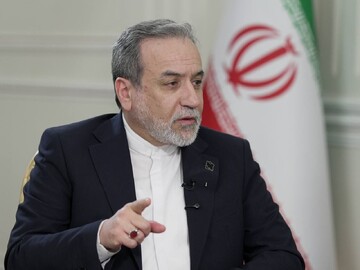
Origin of any attack on Iran is a ‘legitimate target,’ Iran FM says
TEHRAN - Iranian Foreign Minister Abbas Araghchi, while insisting on the Islamic Republic’s formidable policy of good neighborliness and friendship with all regional countries, has warned against any participation in the acts of aggression against a neighboring country.
Sports
-
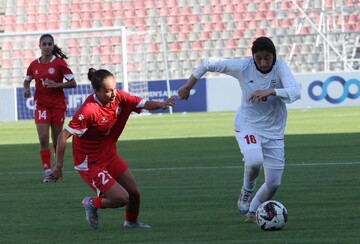
Iranian women carry the hopes of a generation
TEHRAN - As the 2026 AFC Women’s Asian Cup unfolds in Australia from March 1–21, few stories are as inspiring and hard-earned as that of Iran’s women’s national football team. For only the second time in its history, Iran have qualified for this premier continental tournament, a milestone that reflects both sporting progress and social resilience.
-

Iran lose to Jordan at FIBA World Cup Qualifiers 2026
TEHRAN - After threatening to break the FIBA World Cup Qualifiers all-time scoring record in Window 1 with a 42-point masterpiece, Harris was back at it again.
-

Iran to play friendly matches to prepare for 2026 Asian Beach Games
TEHRAN – Iran beach soccer coach Ali Naderi said on Friday Team Melli are going to play several friendly matches as part of preparation for the 2026 Asian Beach Games.
Culture
-

“Sami” to compete in 2nd Sapienza Film Festival
TEHRAN – Iran’s first Arabic-language drama “Sami” written and directed by Habib Bavi Sajed will compete in the main competition section of the 2nd Sapienza Film Festival, set to be held from March 4 to 7, in Napoli, Italy.
-

Arasbaran Cultural Center to review “Nuremberg”
TEHRAN- “Nuremberg”, a 2025 movie by American film director and screenwriter James Vanderbilt, will be reviewed at the Arasbaran Cultural Center in Tehran on Sunday evening.
-

Tehran theater to host reading performance of Stoppard’s “A Separate Peace”
TEHRAN- Sahne-ye Abi Theater in Tehran will be playing host to a reading performance of British playwright and screenwriter Tom Stoppard’s “A Separate Peace: A Play in One Act” on Tuesday.
Economy
-

NIDC drills 116 oil, gas wells in 11 months, up 23% year-on-year
TEHRAN – National Iranian Drilling Company (NIDC) drilled and completed 116 oil and gas wells in the first 11 months of the current Iranian year (March 2025-February 2026), marking a 23 percent increase compared with the same period last year, a senior official at the company said.
-

Iran’s exports to Qatar rise 34%, trade balance turns positive
TEHRAN – Iran’s non-oil exports to Qatar rose 34 percent in weight and eight percent in value in the first 10 months of the current Iranian year (March 2025-January 2026), reaching $122 million, while lower imports shifted the bilateral trade balance into surplus in Iran’s favor.
-

Non-oil goods worth nearly $5b exported from Khuzestan in 10 months
TEHRAN- As announced by a provincial official, 17.029 million tons of non-oil commodities valued at $4.925 billion were exported from Khuzestan province, in the southwest Iran, during the first 10 months of the current Iranian calendar year (March 21, 2025-January 20, 2026).
Society
-

National energy management program implemented in 120,000 schools
TEHRAN – According to the ministry of education, the national program for energy management has been implemented in 120,000 schools so far.
-
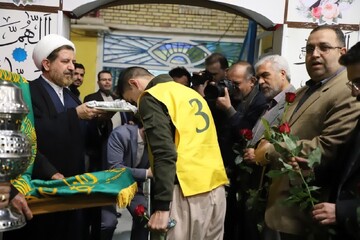
Over 8,850 prisoners of involuntary crimes freed this year
TEHRAN – A total of 8,859 prisoners of unintentional crimes have been released from prison so far in the current Iranian year (which began on March 21, 2025).
-

Over 2,000 students attend Kid Code tech competition
TEHRAN – Some 2,180 students have participated in the fifth edition of the national scientific and technology competition known as Kid Code. This year, the competition was held on February 26 and 27 at Tehran Permanent International Fairgrounds, attracting students from 28 provinces of the country.
Tourism
-

Study sheds new light on UNESCO-listed Khorramabad Valley Prehistoric Sites
TEHRAN – A new scientific article on the Chalcolithic and Bronze Age periods in the Khorramabad Valley has been published in the latest issue of the journal of the National Museum of Iran, the head of Lorestan’s Cultural Heritage Department said on Friday.
-

National eco-lodge training workshops launched
TEHRAN – National training workshops for eco-lodge operators have begun across Iran, the head of the Iranian association for eco-lodge operators said on Saturday.
-

Bread wrapping; a motherly ritual during Ramadan
TEHRAN-- In the old alleys and traditional neighborhoods of Bushehr province, a motherly ritual called ‘noon pooshi’ (bread wrapping) is held with the arrival of Ramadan.
International
-

Ideology reshapes U.S. diplomacy in West Asia
TEHRAN – The United States’ diplomacy is under scrutiny after remarks by its ambassador to Israel signaled a clear ideological shift.
-

Why are the American people turning away from Israel?
TEHRAN – For decades, support for Israel functioned as a near-sacred pillar of American political life. It transcended party lines, survived wars and uprisings, and remained largely immune to shifts in public mood. That consensus is now visibly fracturing. The latest Gallup findings mark a historic inflection point: for the first time in a quarter century of polling, more Americans say they sympathize with Palestinians than with Israelis. The shift is not marginal; it is structural, generational, and political.
-

Pakistan carries out airstrikes inside Afghanistan with no letup in border fighting
Pakistan’s military, backed by artillery and air power, struck more military installations deep inside Afghanistan overnight and into early Saturday, after Pakistan said it was in “open war” with its eastern neighbor, the Associated Press reported.
Most Viewed
-
Iranian missiles hit five key US bases
-
85 female elementary students killed in US-Israeli strike on Iran
-
IRGC attacks Israel after US-Israeli strikes on Iran
-
Iran was not bluffing
-
Iran’s Day 1 strikes
-
Iran’s Foreign Ministry vows ‘decisive defense’ after US bombs negotiating table a second time
-
IRGC strongly hits USS MST vessel
-
Ten critical questions following the U.S.-Israeli military assault on Iran
-
From headlines to hostilities: How Israel and US media beat the drums of war with Iran
-
Global reactions erupt following U.S.-Israel strikes on Iran
-
Trump’s justification and the logic of war
-
A shaky step forward
-
All high-ranking Iranian officials are alive: FM
-
Iran Armed Forces to take out US troops, equipment in case of war: senior general
-
Qatar Airways maintains daily Tehran-Doha flights







